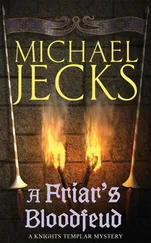“Have the miners made a difference?”
“They’ve got more greedy. Before, there was only a small number. Now there’s lots, and a few own all the mines. Used to be that all tinners were like that Bruther or Smalhobbe, just one or two men with a little place. Now there’re lots all covering the same bit for the likes of Thomas Smyth.”
“I suppose at least you’re safe up here, anyway. There aren’t many come all this way to trouble you.”
The axe paused, then fell again. “If you’ve got rights of pasturage, they come close enough. They dig all over the place, and leave their holes in the ground for animals to hurt themselves in. I had a heifer break her leg last year, but I can’t get money from the miners, they claim stannary privileges. I lost my cow, but I’ll get no help from them even though it was their fault.”
“And it’s worse than it used to be?”
“Ah, yes. Time was, they used to come no closer than five miles from here. Now they’re only a mile away, and right where I lead the herd.”
“And you think they’re being greedy?”
“We have ancient rights here, bailiff, we who live in the common land of the moors. We’ve been here since time out of mind, my family and a few others, but now our lives are being made hard by some few foreigners. There are robberies done by some – there was one on the night Bruther died. They demand money not to take our land, and if they aren’t paid, they dig it and take the water so we can’t use it. But we can do nothing. Who’s going to protect us who live out here if the miners choose to attack us or steal what’s ours?”
“You say there was a robbery? Who was attacked?”
Adam Coyt jerked his head in the direction of Widecombe in the Moor. “Old Wat Meavy at Henway. He was knocked down and had his purse taken.”
“I wasn’t told,” said Simon with a frown.
“When these things happen, we can’t run to Lydford every time. Anyway, one minute he was riding into Chagford, and the next he was on his bum in the middle of the road and lighter by some pennies. There are too many miners out here to worry about just another robbery, bailiff. It happens all the time.”
“And it’s getting worse, from what you say.”
“Yes.” He suddenly looked up and pulled a wry smile, shrugging. “But isn’t it the same all over the country? The King’s warden knows how things are going, doesn’t he? From all I hear, it’s not just here, it’s everywhere.”
“But if people are suffering badly, you should tell the chief warden, or at least me as a bailiff. We might…”
“Suffering badly!” the farmer cried, and let the axe fall from his hand. “And what do you think has been happening here? Whole vills have emptied with the bitter weather, the last people leaving before the land eats them up, like it has their fathers, their mothers, their wives and children. Do you need us to come and tell you how places like Hound Tor have emptied? The menfolk worked on while their women sickened and their children died, just as we have to, we farmers. We have our farms to look after, but what good are they when our boy-children are gone? Why keep toiling and straining when there is no one to pass your profits to? Up at Hound Tor, there were only three left, out of eleven four years ago: all dead, all gone! Had you not heard, bailiff?”
His wide, staring eyes held a misery and near-desperation which struck like a mace at Simon’s heart. The famine had been appalling, he knew, but somehow he had never associated it with the troubles here on the moors. During the worst of the suffering he had still been living at Sandford, far to the north and east, where the farms were not so badly affected.
Seeing the understanding on the bailiff’s face, Adam bent slowly and painfully to retrieve his axe. Grunting as he straightened, he peered at it as if he no longer recognized it. When he spoke, his voice was contemplative. “I had a wife and a son – just the one, the other children all died young; they have to be hardy to survive out here. There’s no midwife, no wetnurse to help. There was always only me, and often enough I was out working when my wife gave birth. I think it was the last birth that was so hard on her, she never really recovered afterward. She looked so pale and weak for the next year and a half. Then when she had been out working one afternoon, she died in a snowstorm on her way home. And then my boy started to fade too.” He blinked suddenly, then swung the axe viciously. “I’m not alone,” he said resolutely. “There are many like me round here. Lots of us have lost our own, had to take them to Widecombe or Lydford when the snow cleared to have them buried. We’ve all suffered enough. So if we forgot to tell you before, sir, at least you know now.”
Baldwin had been silent, but now he cleared his throat and leaned forward. To offer sympathy would have been insulting, he knew, and would have been taken as patronizing. “Adam, could you tell us about the night Peter Bruther died. Where were you that day?”
The axe dropped and a branch leapt away. Picking up the twigs, the farmer tossed them onto the growing pile by the door, then sighed and walked out, crossing the yard to the house, returning with a large earthenware jug which he upended, taking a long draft. Wiping his mouth with the back of his hand, he passed it to the knight, who smiled appreciatively. Tipping it, Baldwin found it was filled with cider so strong he could hardly swallow, and he had to control an urge to cough at the pungent fumes. It was with relief that he passed it on to Simon.
“That afternoon, I was up to the north of here, seeing to some peat up near Longaford Tor, where the ground is flat before the marsh. I often go there, it’s good fuel,” Coyt said, glancing at the bough before him. “And wood is not plentiful here. It’s too valuable to burn. Anyway, it took longer than I expected, and my old pony isn’t as fast as she used to be when she has a weight to carry, so I was late coming home. I was near the Smalhobbe place just as dusk fell. Young Henry, he was game, I’ll say that for him. He tried to get one of the men waiting, but there were two others got him first.”
“Did you try to get help?”
“Help? Up there? Where would you expect me to go? The nearest place was that miner’s, Bruther’s, about a mile or so north, and how was I to know that one miner would want to help another? It was miners attacking Henry, and what good would bringing another do? And what difference would one more make? Even if I ran all the way there, the three would have been gone by the time I got back.”
“How was his wife?”
“She was making a row – screaming and such. But the men didn’t hear her. They just kept beating her man.”
“Was anyone else out there?”
“I saw a couple of riders before, while I was cutting peat.”
“Did you see who they were?” asked Baldwin sharply.
Coyt glanced at him in faint surprise. “I think it was that miner, Smyth, and his man. They were off north of Smalhobbe’s.”
“What, heading up toward Bruther’s?” Simon demanded.
“Yes, up that way, I suppose,” Coyt said disinterestedly.
“You’re sure it was them?”
“They passed me later on the road, just as it was getting really dark. I recognized their horses. It was them.”
“I see.” Simon and Baldwin exchanged a glance. If the men were coming along the road, they were coming from the direction of Wistman’s Wood. Baldwin continued, “And you kept going southeast?”
“Yes, down to the road, then over and east. There’s a path there which brings me to my door. It took some time with my poor old pony.”
“And you saw nobody else on the road? No one else passed you?”
Читать дальше












